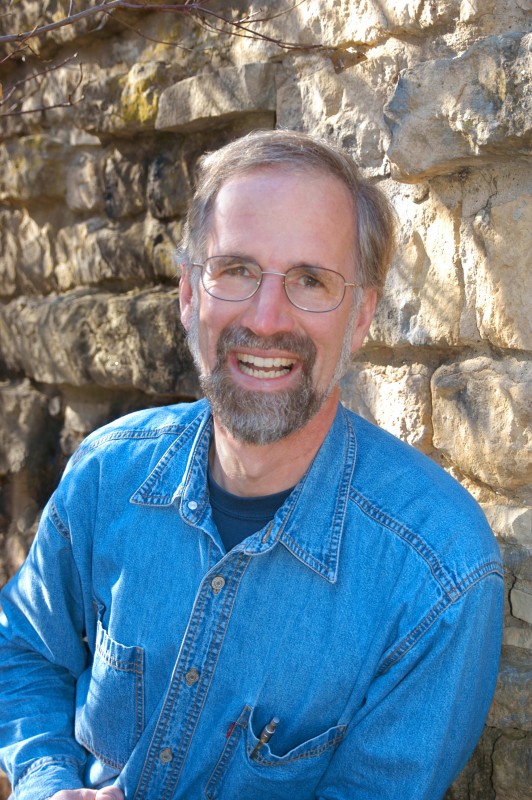A leading scholar and author deliver free lectures:
6:30 p.m. Thursday, March 26;
3 p.m. Friday, March 27
TACOMA, Wash. – William Cronon, one of America’s leading environmental historians and a prize-winning author of books about humanity’s impact on the natural world, will give two free, public talks at the University of Puget Sound on March 26 and 27.
The two-talk series, “At Home in the Anthropocene: Human Place(s) in Nature,” will foreshadow two new books the noted historian is writing. Cronon will talk about his research on how landscapes are modified by our ideas and how we can better pursue sustainability goals.
Cronon is the Frederick Jackson Turner Professor of History, Geography, and Environmental Studies at the University of Wisconsin-Madison. He is the former president of the American Society for Environmental History and a member of The Wilderness Society's governing council. He is the author of Nature’s Metropolis: Chicago and the Great West and Changes in the Land: Indians, Colonists, and the Ecology of New England, as well as the editor of Uncommon Ground: Rethinking the Human Place in Nature and the controversial essay “The Trouble with Wilderness: Or, Getting Back to the Wrong Nature.”
The two talks are free, open to the public, and do not require tickets. They are:
“The Portage: Time, Memory, and Storytelling in the Making of an American Place”
6:30 p.m. Thursday, March 26
Schneebeck Concert Hall
Based on the opening chapter of the book Cronon is writing on the deep history of Portage, Wis.; the lecture meditates on the role of memory and storytelling as human beings construct their sense of place. An ecosystem or a geographical space becomes a human place, he argues, through the endless narratives that make the place meant for those who visit or live in it. Portage was Frederick Jackson Turner's hometown, the American historian who authored the famous "frontier thesis." It was also the town into whose hinterland John Muir migrated as an 11-year-old boy from Scotland, and the town that housed Aldo Leopold's "Shack," the famed subject of the book A Sand County Almanac. Although virtually unknown to most Americans, few places have played so central a role as Portage in shaping our national ideas of nature.
“Saving Nature in Time: The Environmental Past and the Human Future”
3 p.m. Friday, March 27
Schneebeck Concert Hall
In this lecture, drawn from a book of the same title that he is currently completing, Cronon analyzes key cultural assumptions about humanity and nature that have characterized modern environmental thinking in the United States for the past several decades. He seeks to understand how these unexamined assumptions have sometimes undermined environmentalism's effectiveness as a political, social, and cultural movement. His goal is to try to imagine how environmentalism might be more effective if its followers did a better job of mingling the natural and the cultural in the service of humane values.
William Cronon studies American environmental history and the history of the American West. His books have won numerous honors, including the annual Bancroft Prize for the best work of American history and a Pulitzer Prize for history nomination for the 1991 book Nature's Metropolis. Prior to joining the University of Wisconsin-Madison, Cronon taught in Yale University’s history department. He is a founding faculty fellow and former director of UW-Madison’s Center for Culture, History, and Environment. He has been a member of the national board of The Trust for Public Land since 2003 and served as president of the American Historical Association during 2012.
Born in New Haven, Conn., Cronon holds Master of Arts, Master of Philosophy, and doctoral degrees from Yale University, and a Doctor of Philosophy degree from Oxford University. Cronon has been a Rhodes Scholar, Danforth Fellow, Guggenheim Fellow, and MacArthur Fellow, and is a member of prestigious academies, including the American Academy of Arts and Sciences.
Since its inception in 1953, the Brown and Haley Lecture series has brought distinguished scholars to Puget Sound to explore real and urgent issues confronting society from the perspective of the social sciences and humanities.
For directions and a map of the University of Puget Sound campus:pugetsound.edu/directions
For accessibility information please contact accessibility@pugetsound.edu or 253.879.3236, or visit pugetsound.edu/accessibility.
Press photos of William Cronon can be downloaded frompugetsound.edu/pressphotos.
Tweet this: William Cronon; acclaimed environmental historian speaks @univpugetsound, March 26, 27. Free. Everyone welcome. http://bit.ly/17imaoT
Follow us on Twitter! twitter.com/univpugetsound


